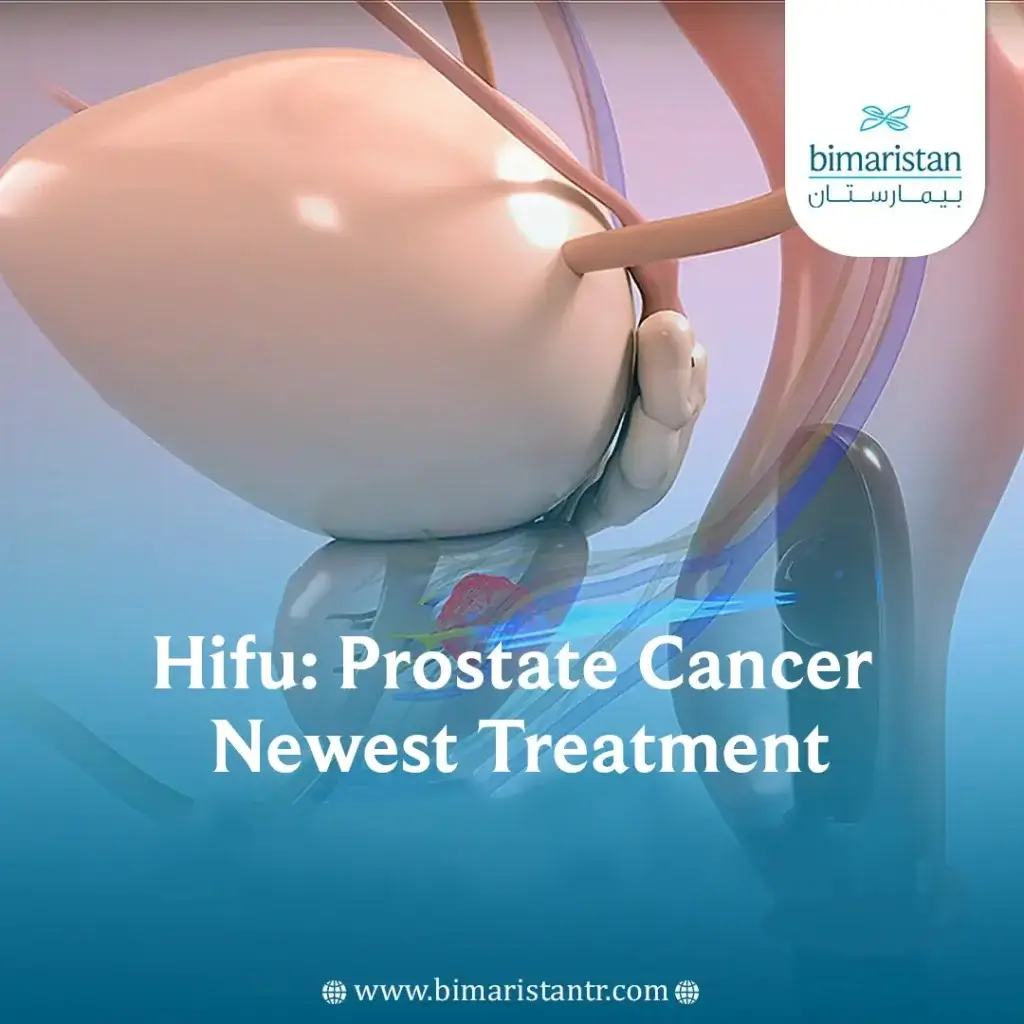Prostate cancer treatment with HIFU (high intensity focused ultrasound) has become possible without pain or surgery, making it one of the most important treatments focusing on early-stage tumors in recent years.
Prostate cancer is one of the most common cancers affecting men worldwide, with a 13% incidence rate, according to the latest statistics. What distinguishes prostate cancer is the high recovery rate when diagnosed early. Turkey has worked to provide the latest methods for treating prostate cancer using minimally invasive techniques such as high intensity focused ultrasound (HIFU), which does not require surgical incision and exposes the patient to minimal risk.
Radiation devices have undergone significant development, allowing their use in cancer treatment. One of the latest devices is the robotic radiation device for prostate cancer treatment, characterized by high efficiency and standard speed in eliminating cancer cells. In this article, we will learn about the HIFU technique and its advantages, along with its cost in Turkey.
How is prostate cancer treated with HIFU ultrasound?
As is known, the ultrasound device is used medically as a diagnostic procedure and is one of the most common imaging devices. The waves generated by the ultrasound probe move into the tissues, which absorb or reflect these waves according to the nature of the tissue. The reflected sound waves are then analyzed and converted into an image that reveals the presence of a disease or problem in the examined area.
The passage of focused ultrasound waves through tissues generates thermal energy. However, when the waves are focused on a single point, the thermal energy increases significantly, leading to the burning of cells at the target point and the eradication of cancer cells. The burned area is merely a focal point where the ultrasound waves are concentrated without causing burns to the cells through which the waves pass. This is one of the advantages of applying high intensity ultrasound to the prostate, as adjacent healthy tissues are not affected.
Doctors can take advantage of this feature to destroy cancer cells, especially prostate cancer. The probe -inserted through the rectum- is directed towards the prostate gland, and then the areas to be targeted are determined through a computer software.
Steps for treating prostate cancer with hifu procedure
The treatment is applied under general or regional anesthesia. The doctor inserts a special probe into the rectum from which HIFU ultrasound waves are emitted, controlled and directed through a computer. Due to the sudden and strong absorption of the waves, there is a temporary increase in temperature at the target point (85 to 100 degrees Celsius), leading to the destruction of cells in the targeted area.
Each focus in the ultrasound waves (shot) targets an area of 22 mm in length and 2 mm in width, oval in shape. Shots are repeated, and the focal points are changed through the connected computer and robot, enabling us to destroy all cancerous areas and thus eliminate the malignant prostate tumor.
Advantages of Hifu treatment
As mentioned earlier, the use of hifu prostate treatment is limited to treating the site of the tumor only, not the entire prostate. One of the most important features of the procedure is that it is not an open surgical procedure, so complications are not like surgery, greatly reducing the side effects that can result from open surgery and also reducing the recovery period.
The advantages can be summarized as follows:
- Targeting cancer cells without exposing nearby organs and cells to harm. Avoiding the harmful effects of radiation. Reducing hospital stay.
- The treatment can be applied in one session and can be repeated if necessary. If the patient cannot complete the treatment for any reason, transitioning to alternative treatment method is available for the patient.
Follow-up after hifu treatment for prostate cancer
A blood sample test to examine the level of PSA (a marker used for early cancer detection, secreted by the gland in benign prostate enlargement or cancer) is sufficient to be performed regularly for three months. However, in some cases, a prostate MRI or even a biopsy may be necessary.
Patients return to their normal lives immediately after the sessions and do not need long periods of rest as with surgical procedures.
Hifu and prostate cancer: who undergoes this procedure?
Patients who can benefit from applying high-intensity focused ultrasound to treat prostate cancer are:
- Patients with prostate cancer at stage T2 or T1 (in the early stages of cancer).
- Patients who cannot undergo radical prostatectomy.
- Men who prefer minimal surgical intervention.
Long-term follow-up studies on prostate cancer treatment using high-intensity focused ultrasound (HIFU) in Turkey have shown a high survival rate for cancer patients, with success rates approaching those of robotic surgery. In addition, there is an exceptionally high success rate for cancer patients in the early stages, approaching 98%.
Through advancements in technology in treating prostate cancer with high-intensity focused ultrasound and clinical practice, it is possible to combine it with transurethral resection of the prostate (TURP) where it helps in complete prostate resection of any size without any complications.
Hifu treatment cost in Turkey
Turkey is characterized by low treatment prices while providing the best medical services, making Istanbul one of the top medical destinations worldwide. The average HIFU treatment price is about $7,500 US Dollars, while the cost of this procedure in the United States can reach around $15,000 US Dollars.
Contact us for more details on prices and to guide you to the best medical centers in Turkey, along with arranging travel and accommodation procedures and follow-up until the end of the treatment period.
In conclusion, Hifu therapy is an excellent option, especially when cancer is detected in its early stages. It is a non-surgical procedure that does not involve pain and does not require long periods of rest. You can contact us for a free consultation from our medical team and to schedule an appointment with the best doctors in Turkey.
References:
